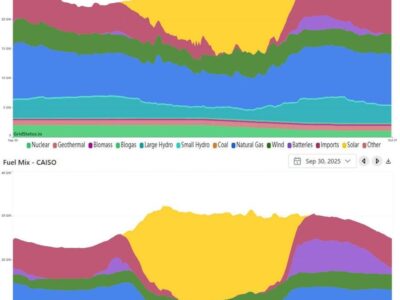An Inconvenient Logic
Justice Scalia’s argument in the FERC case contradicts his attack on Obamacare.
They say consistency is the hobgoblin of small minds. If so, Justice Scalia is in good shape. His argument last week in the FERC argument was totally inconsistent with his argument against the constitutionality of Obamacare. Both cases involve change in the incentives to enter a market in the first place. In the Obamacare case, Scalia said that changing those incentives wasn’t a regulation of transactions in the market, but in the FERC case he says it is.
To go into a little more detail: In the Obamacare case, Justice Scalia argued that Congress has the power to regulate insurance transactions. But, he argued, penalizing someone for failure to enter the health insurance market isn’t a regulation of that market. However, in the FERC case, Justice Scalia argued that paying people not to enter the retail electricity market was a regulation of retail transactions. (That’s a no-no for FERC, because the statute allows regulation of retail rates only by state governments.)
Scalia’s argument in the FERC case was counter-intuitive and may seem a bit hard to grasp, but it did have a certain logic. Basically, he argued, FERC had changed the “effective” retail price of electricity, because anyone who bought electricity had to pay out-of-pocket and also give up the opportunity for an energy reduction payment. Thus, he said, the FERC demand reduction rule was a form of price regulation of the retail insurance market. In other words, his theory was:
change in incentive to buy power = change in the effective price = regulation of all sales
Thus, in Scalia’s view, when the government offers to pay people $200 not to buy power, but they buy power anyway, their “effective” cost has gone up by $200. But the same reasoning applies in the reverse situation: if the government says it will fine them $200 unless they buy electricity, the “effective” cost of electricity has just gone down by $200. By Scalia’s reasoning, that would be a form of price regulation of the electricity market — not of the people who stay out of the market, but of all the people who stay in the market and buy electricity.
That, of course, is exactly what the individual insurance mandate did for the health insurance market. Suppose that, prior to the statute, the price of a certain health care policy was $900. Then Congress passed a law imposing a $700 penalty for failing to buy insurance. Now, what’s the “effective” price of the policy? By the same reasoning Scalia used in the FERC case, it’s now only $200 – because you have to pay $700 either way, so the only added cost of buying the insurance is $200. That means that, once Congress passed Obamacare, what Scalia calls the “effective price” of health insurance went down by $700 for everyone who bought a policy. (I know that seems strange, but that’s his theory.) And Scalia says in the FERC case that changing the effective price is a form of direct regulation.
Or, in other words, according to Scalia’s logic,
change in incentive to insure = change in effective price = regulation of insurance price
In short, on Scalia’s theory, the individual mandate wasn’t just regulating inaction (people who didn’t want to ensure). It was also regulating action — changing the effective price paid by all the people who were going to buy insurance no matter what. Given that he’s never questioned that Congress had the power to regulate the actual insurance sales, his logic required him to equate the individual mandate with every other regulation of the market.
In other words, if instead of calling it the individual insurance mandate, you called it “insurance demand response regulation,” Scalia would logically have voted to uphold Obamacare. If he was being consistent, that is.
Reader Comments
One Reply to “An Inconvenient Logic”
Comments are closed.






Dan, the following commentary from a blog post relates to your topic:
“……..Don’t forget that environmentalists are basically pagans. Pre-monotheistic pagans worshiped nature, which includes making nature more important than people. Monotheistic religions put God on top.This can be seen in left vs right environmental concerns.The right is interested in controlling pollution because pollution hurts people.The left is interested in controlling people because people “hurt” nature……”